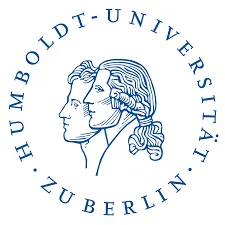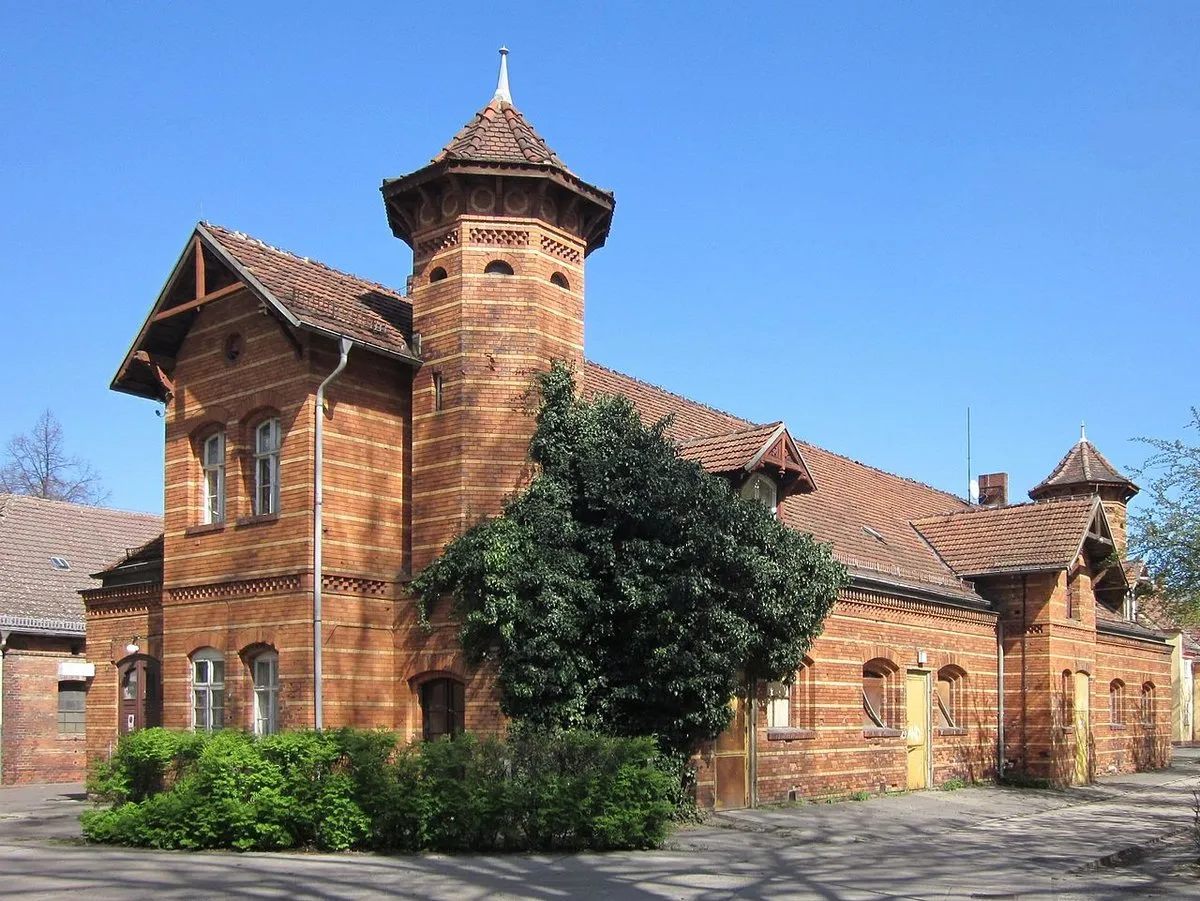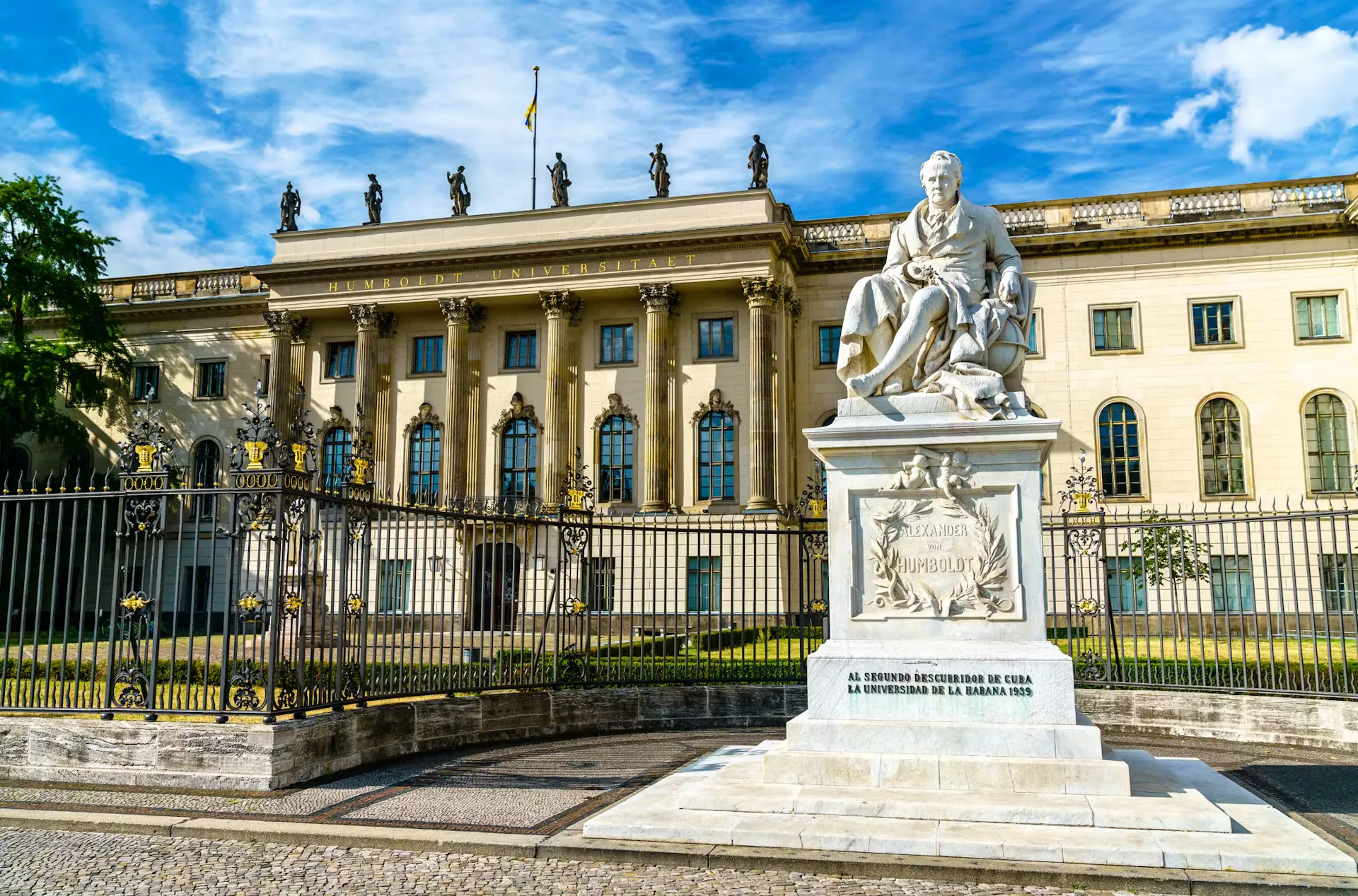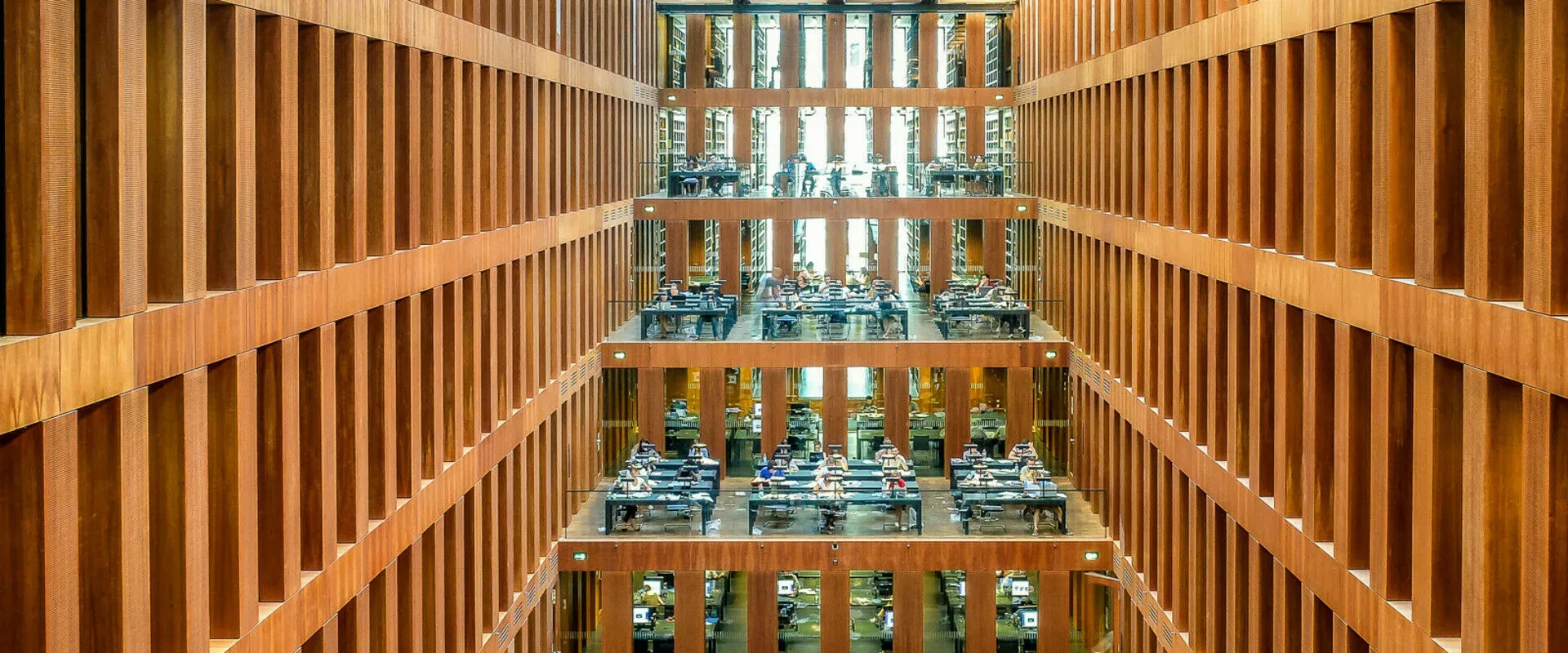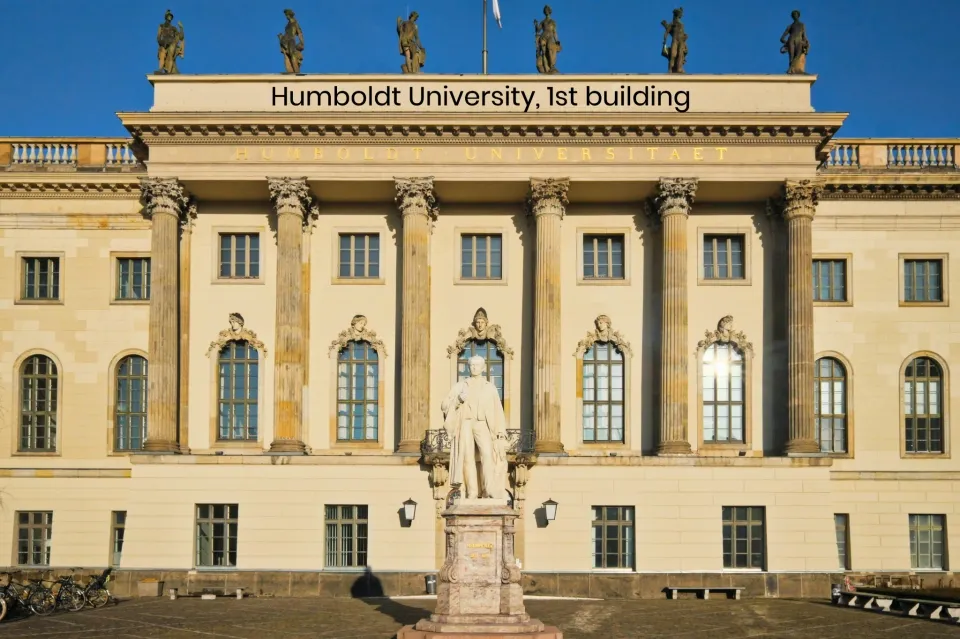About

University Type
Public

Berlin,
Germany

Year Established:
1810
The Humboldt University of Berlin (German: Humboldt-Universität Zu Berlin, abbreviated HU Berlin) is a public research university in the central borough of Mitte in Berlin, Germany. It was established by Frederick William III on the initiative of Wilhelm von Humboldt, Johann Gottlieb Fichte and Friedrich Ernst Daniel Schleiermacher as the University of Berlin (Universität zu Berlin) in 1809, and opened in 1810, making it the oldest of Berlin's four universities. From 1828 until its closure in 1945, it was named Friedrich Wilhelm University (German: Friedrich-Wilhelms-Universität). During the Cold War, the university found itself in East Berlin and was de facto split in two when the Free University of Berlin opened in West Berlin. The university received its current name in honor of Alexander and Wilhelm von Humboldt in 1949.
The university is divided into nine faculties, including its medical school shared with the Free University of Berlin, has a student enrollment of around 32,000 students, and offers degree programs in some 189 disciplines from undergraduate to postdoctorate level. Its main campus is located on the Unter den Linden boulevard in central Berlin. The university is known worldwide for pioneering the Humboldtian model of higher education, which has strongly influenced other European and Western universities.
Rankings

#126
QS

#48
USNews

#84
THE
Humboldt University of Berlin Program Rankings
- Arts & Humanities - Rank #34 (QS)
- Life Sciences & Medicine - Rank #82 (QS)
- Natural Sciences - Rank #68 (QS)
- Social Sciences & Management - Rank #55 (QS)
- Physics & Astronomy - Rank #51-100 (QS)
- Chemistry - Rank #51-100 (QS)
- Mathematics - Rank #51-100 (QS)
- Computer Science - Rank #151-200 (QS)
- Biological Sciences - Rank #51-100 (QS)
- Anthropology - Rank #51-100 (QS)
- Economics - Rank #101-150 (QS)
- Philosophy - Rank #51-100 (QS)
- Psychology - Rank #51-100 (QS)
Humboldt University of Berlin Highlights
FAQs
What are the most popular graduate programs offered at Humboldt University of Berlin?
Humboldt University of Berlin is renowned for its strong programs in the humanities, social sciences, and natural sciences. Popular graduate programs include Philosophy, History, Biology, and Physics. The university also excels in interdisciplinary studies, offering unique programs that combine law, economics, and social sciences, attracting a diverse international student body.
What is the Annual Cost of attendance at Humboldt University of Berlin?
As a public university, Humboldt University of Berlin charges no tuition fees for most programs, except for some professional development courses. The annual cost of living is approximately €10,200 (about ₹8,51,900 rounded to the nearest hundred as of the latest exchange rate). This includes accommodation, food, transport, and personal expenses.
What Financial aid and scholarship options are available at Humboldt University of Berlin?
Humboldt University offers several scholarships and financial aid options, primarily for international and doctoral students. Options include Deutschlandstipendium, DAAD scholarships, and specific research grants. Students can apply through the university's International Office or directly via scholarship portals provided on the university's official website, where application procedures and deadlines are detailed.
What is the reputation and ranking of Humboldt University of Berlin?
Humboldt University of Berlin consistently ranks highly on global scales, particularly noted for arts and humanities, social sciences, and natural sciences. For instance, it often appears in the top 100 for arts and humanities in QS World University Rankings. Its philosophy, social sciences, and quantum physics programs are also internationally acclaimed, underscoring its reputation as a leading research university.
What is the campus culture like at Humboldt University of Berlin?
The campus culture at Humboldt University of Berlin is vibrant and intellectually stimulating. Students can engage in numerous clubs, ranging from sports to arts and academic societies. The university hosts regular cultural fests, public lectures, and workshops that foster a dynamic exchange of ideas. Annual events like the "Lange Nacht der Wissenschaften" (Long Night of the Sciences) are highlights, drawing large crowds.
What are the housing options at Humboldt University of Berlin?
Students at Humboldt University of Berlin can choose from on-campus dormitories or various off-campus housing options. Popular neighborhoods for off-campus living include Mitte, Kreuzberg, and Friedrichshain, known for their youthful atmosphere and relatively affordable rental prices. The university's Studentenwerk (Student Services Organization) offers assistance in finding suitable housing and also manages several student residences close to campus.
